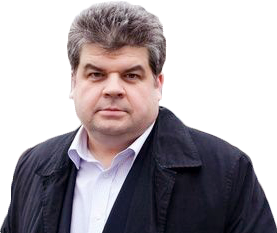The International Court of The Hague has scheduled for early June public hearings on Ukraine's claim vs Russia. Ukraine claims Russia violated two conventions: on combating the financing of terrorism and the elimination of all forms of racial discrimination. The case has been under consideration by the Hague Tribunal since January 2017. In April of that year, the court only partially upheld Ukraine's request for interim relief measures against Russia – the measures concerned only the International Convention on the Elimination of All Forms of Racial Discrimination.
There is little public information on the case's progress at the International Court of Justice in The Hague. After Ukrainian President-elect Volodymyr Zelensky takes up his post, we can hope that more information will be available on the topic. So far, the Ministry of Foreign Affairs of Ukraine is not too eager to inform the public about what's actually happening in this regard. We have only heard predictions that two years will be enough to complete this case, but more time has already passed...
After seeing a more accurate picture of developments at the Hague trial, it is likely that Ukraine will have to revise certain approaches. After all, the claim was filed in conditions of complete terminology chaos.
In fact, from the point of view of international law, what is happening on the territory of Ukraine is an international conflict. And it's very easy to establish
In legal terms, President Poroshenko was wary of declaring war, completely avoiding the move to recognize it as a fact. That is why, for several years, it was exclusively about an "anti-terrorist operation" on the territory of Ukraine and the fight against terrorism.
In fact, from the point of view of international law, what is happening on the territory of Ukraine is an international conflict. And it's very easy to establish.
Therefore, I believe the court will not take into account the arguments of Ukraine on Russia's financing of terrorism in our country. But it's not because Russia is good, it's because all the legal grounds for this claim could be considered inappropriate and untrue.
Therefore, we should treat calmly the possible outcome of this trial in the Hague, harboring no undue expectations and hopes.
There is a bit bigger chance for Ukraine of bringinf Russia to account for racial discrimination. After all, in Crimea, there were many facts of persecution against the Crimean Tatars on ethnic grounds, as representatives of a certain nation, and facts of hindering the activities of Crimean Tatar structures. There are dozens of cases of pressure on Crimean Tatar activists on the part of the occupation authorities, and that on Crimean Tatar bodies (the ban on the Mejlis).
But as for the attempts to bring Russia to responsibility for financing terrorism, I believe this case has very uncertain prospects. I emphasize, this is not because the court admits that Russia acted correctly. It's not the case. It's because the context in which Ukraine has put forward its claims seems artificial and not corresponding to the realities.
So, prospects for obtaining a court decision in favor of Ukraine remain vague.
Russia does not finance terrorism on the territory of Ukraine – Russia finances the war and wages this war against Ukraine. This is quite different in the legal sense of the concept; it's completely different circumstances. In the framework of financing and waging the war against Ukraine, Russia, indeed, resorts to methods that resemble terrorist attacks. Assassinations of and attempts on Ukrainian intelligence operatives are acts of war. It's just that they are simply carried out by the state against the state, and on behalf of the state. These are not terror acts. They are classified otherwise. And here's where the big problem lays.
Therefore, whatever Ukraine does now, it will be very difficult for the government to prove that the "LPR" and "DPR" are terrorist groups or organizations.
Russia does not finance terrorism on the territory of Ukraine – Russia finances the war and wages this war against Ukraine. This is quite different in the legal sense of the concept; it's completely different circumstances
Moreover, Ukrainian legislation already provides other definitions: it's already not about Donbas being a temporarily occupied territory – in international law, there is such a concept as "certain regions of Donetsk and Luhansk regions," now it's about the occupation administration, and so on. So, even within the framework of national law, pursuing the case as terror-related is a hopeless endeavor.
This is about an inter-state conflict. And it is in such a light that it is necessary to perceive the developments underway on the territory of Ukraine.
Recently, the Joint Forces Commander noted an interesting thing: transformation of forces fighting against the Ukrainian Army in Donbas into the 1st and 2nd Army Corps has shifted the entire situation toward the military plain. That is, while previously there was "terrorism," the formation by Russia of these army corps turned the anti-terrorist operation into a regular military operation. It's a shame that this has not been noted earlier because this fact could be used in the future.
So, I would be glad to be mistaken but so far, the prospects for bringing Russia to account in The Hague for financing terrorism are very, very slim.
Bohdan Yaremenko is a Ukrainian diplomat, head of the Maidan of Foreign Affairs Foundation


